Simplified ingest with the Enterspeed .NET SDK

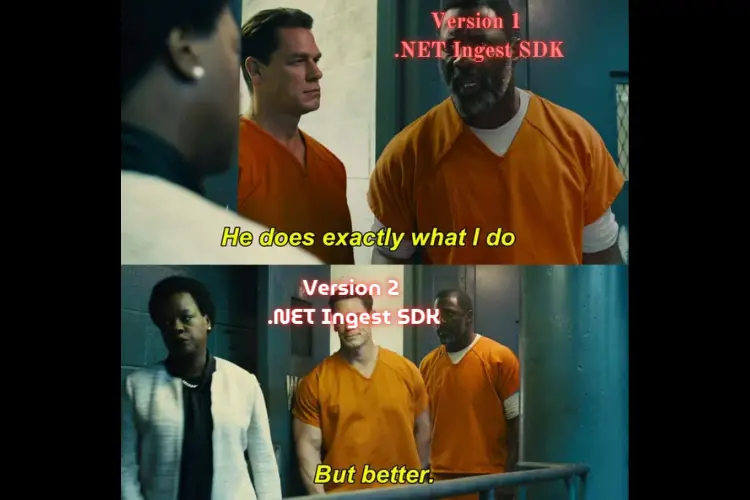


We’ve just released version 2 of our .NET Ingest SDK. The main focus was to make it easier for you to ingest data into Enterspeed.
Ingesting data using our REST Ingest endpoint is quite simple and flexible. It only requires an id and a type of the source entity you are ingesting. Besides that, you can ingest whatever JSON structure you like.
This was not the case with version 1 of our Ingest SDK. In that first version of our Ingest SDK, you had to map all properties to a type of Dictionary<string, IEnterspeedProperty> where IEnterspeedProperty must be either StringEnterspeedProperty, NumberEnterspeedProperty, BooleanEnterspeedProperty, ObjectEnterspeedProperty or ArrayEnterspeedProperty.
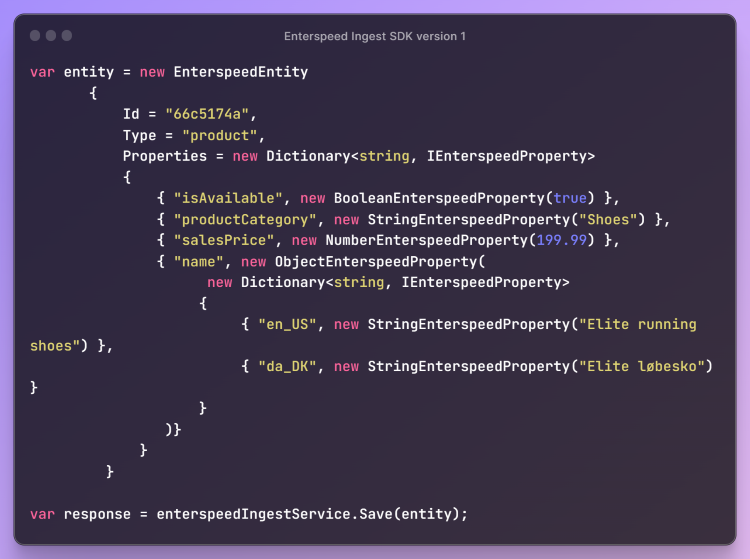
In version 2, the EnterspeedEntity comes in two versions. A generic version where you explicitly define the type for the properties and a version where properties are of type object.
This means that it’s completely up to you if you want to work with a strict or flexible data model.
So, let’s look at some examples.
First off, if you already have a running solution that uses version 1 and you want to upgrade but don’t want to refactor a lot of your codebase, you can simply use the generic version. This means that you don’t have to change all your mapping but just add the generic type to your EnterspeedEntity class.
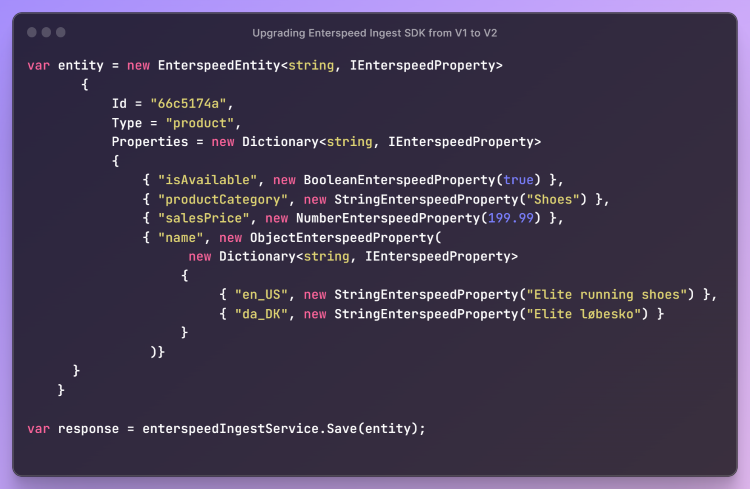
In almost every case where you ingest data into Enterspeed, you start by loading the data from an external source like a CMS, a PIM or an ERP system.
The data you get from these systems are very often represented as JSON. So instead of transforming the JSON structure to an explicit model before you ingest it to Enterspeed, you can now just forward the data model directly to Enterspeed.
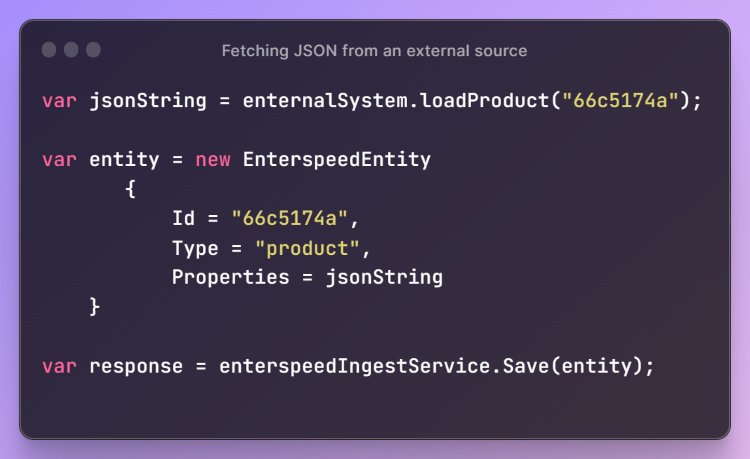
Now, that’s easy, don’t you think? 😊
Another case could be that you already have you own model as a C# class. Maybe because you need to work on the data before ingesting it into Enterspeed or because you have an ORM for loading data from a database.
Once again, with version 2 of the Ingest SDK you don’t have to do any mapping or transformation, you can simply just set your object as properties and ingest the data.
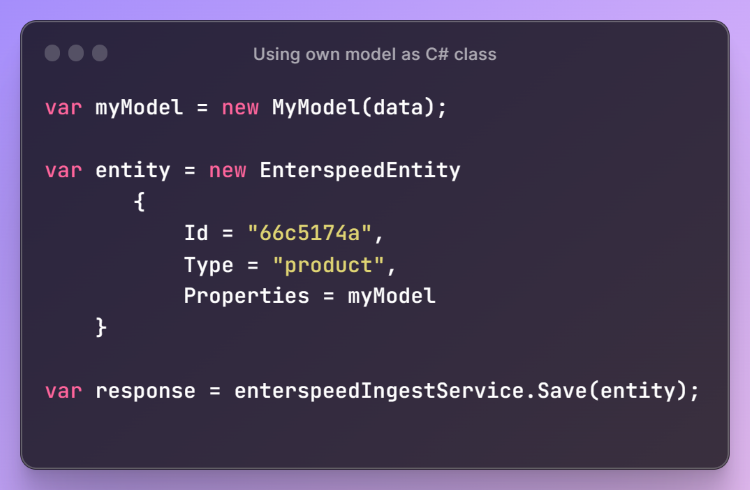
Check out the new .NET Ingest SDK on GitHub or NuGet.
Happy ingesting 😘
And speaking of ingesting... What happens if someone ingests a whole lot of data at once? Or in some other way creates a huge amount of processing jobs? Does it slow down the processing time for others? Well, to ensure that every tenant and client is given equal processing time and resources, we've implemented what we call fair data processing in Enterspeed.

Loves building software that makes an impact on businesses. Untalented but happy ice hockey player (the beers just taste better in a locker room after a game...)
© 2020 - 2026 Enterspeed A/S. All rights reserved.
Made with ❤️ and ☕ in Denmark.